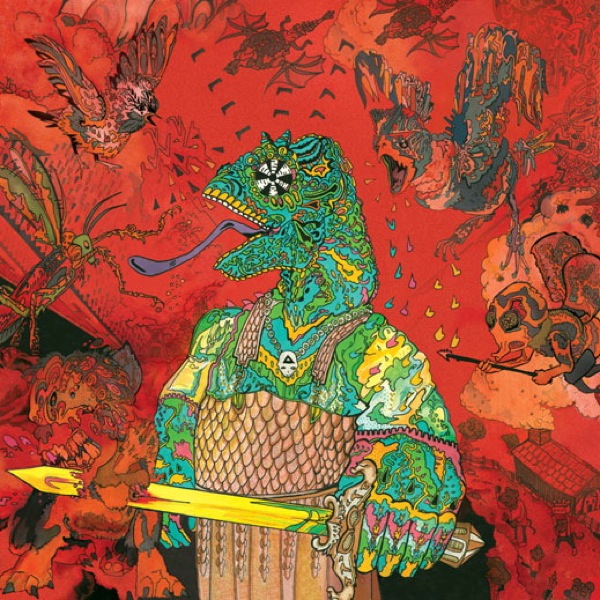He’s no stranger to possessing such quietness in a frenzied environment. The xx recently wrapped up a run of top-billing at some of the biggest European festivals, at which the intimate track selection from their debut record were awash with the chants of thousands – a sensation experienced on a smaller scale at The Forum later this evening. Rationalising the debut album’s absurd longevity and exponential rise, Oliver looks back ahead of the release of its follow-up
“The way it built felt nice and it felt natural, but it’s something that we can’t recreate with this album because a lot of people know now who we are. I’m hoping we can ease our way back in,” he reasons. “I think my greatest fear with what we do would be when a band or an artist is just shoved in your face and you feel like you’re being forced to listen to us.”
The rise and rise of The xx belies their homeland’s tendency to dispose of artists almost as soon as hype is bestowed upon them. “There’s such a bad reputation for that in the UK – first album, ‘This is the best band ever’, then second album, ‘I hate these people.’ It’s something that we’re aware of and it’s why we stopped when we did,” Oliver explains. “We could have kept going for quite a while longer and released more singles, but it didn’t feel right. We got to a place that was more than we ever dreamt of and we were content with that, we didn’t want to milk that.”
In some ways, The xx that took to the studio for Coexist is a different band that recorded the debut in 2008. The then-four-piece is now a three-piece since the departure of guitarist Baria Qureshi. Jamie Smith, the non-vocalist of the trio, gained tremendous exposure for his remix work as Jamie xx. “Baria [Qureshi] was a big part of the band, but she wasn’t a big part of the songwriting,” Oliver explains. “So it has always felt like the three of us when it came to the songwriting. More than ever now, Jamie is more involved in the songwriting in the early stages. Which has been really good, because I think he’s a creative genius. But at the same time he has a very different mind to me and Romy, he’s very technical. He understands structure in a way that me and Romy don’t. I don’t know how to phrase it, but there’s a function to each element of the songs, which is really good to have. I think it’s brought a dynamic to the songs that we didn’t have before. I feel like we’ve gone about this a bit more like a band, like a unit,” he states. “Mine and Romy’s writing before, and still is on some of the songs, is very separate – I write from my home, she writes from her home, then we get together and collage. But this time we went into a room with nothing and built songs together, which was really new for us. It was good, it was very fast. Normally I would email Romy demos and she would email them back. So having her in front of me made the editing process so fast. We wrote three songs on the album in less than half an hour. We wrote four songs together in total. I definitely felt more like a proper band.”
After emerging with an idiosyncratic aural palette, The xx still very much sound like The xx on Coexist. However, those defining characteristics weren’t rigorously pursued on the new record. “We didn’t really go into this with limitations on what we can’t do. Our sound wasn’t very preconsidered or planned out from the beginning – it was a tonne of happy accidents. Songs like VCR are so simple because I wasn’t very good at playing. I was just learning to play my instrument, I was 15, and we couldn’t have made it more complex even if we wanted to,” he smiles. “And me and Romy don’t have big voices so it didn’t make sense to make a big noise that we would have to compete with vocally. We were recording on a five-input multitracker when we were doing our early demos, which was two voices, two guitars and just drums. It was those kind of unplanned things that made the sound in the beginning. I think it’s just a good reflection of who we are. If we were making loud, full-on aggressive music it would be pretty out of character.”
Complementing their aural intimacy, The xx’s lyric sheets have an at-times devastatingly simple capability to resonate. “It’s always personal, but it’s come from a lot more experience this time than the first record – considering they were love songs and I was around 15, 16 years old,” Oliver recalls. “That wasn’t necessarily coming from a place of experience. It was still personal, it was still what I was feeling, but I was peering into a lot of other people’s relationships around me and gaining my own expectations from them. Now my turn has come, come and gone maybe, and I’ve done a lot of venting in my writing, it’s been pretty therapeutic. It’s a scary prospect putting that much out there. I’m just registering now these lyrics are going to be on a lyric sheet in a booklet and a lot of people are going to be hearing these songs, I’m sure.”
The first taste of the new record came in the form of Angels, a sparse, Romy-led, track with the affecting chorus cry of “They would be as in love with you as I am.” Putting forth the track as the world’s introduction to Coexist was an interesting choice, a reaction to people’s initial expectations. “It is the most restrained and it probably isn’t the best representation of the album. It’s just a strong song that’s stayed with all three of us and always been very clear. Jamie said something early on in an interview that we’d been inspired by club music, and I think it was blown out of proportion a bit and people expected us to make a full-on club record, like David Guetta all the way, which we haven’t at all. [Club music] was an influence, but it was an influence among many. Just because it’s an influence doesn’t mean it’s going to represent itself in the way you hear it – like the concept of repetition in dance music inspired us. We just felt Angels was a strong song and it felt right.”
With anticipation for the new record riding high, Oliver mediates on what he would see as the worst-case and best-case scenarios. “Worst case would be,” he pauses to contemplate. “I’m gonna freak myself out here. It would be going a bit like a supernova, being a short burst with the whole idea of people being sick of us. Like if the album was everywhere and people just got tired of it. Best case would be that we leave this record wanting to make a third.”
Kicking off the album touring cycle with two decidedly undersized Australian shows, Oliver promises that the band will return in 2013 on a more appropriate, grander scale. “I’m trying to look at the calendar and it’s terrifying, like a year and a half of my life on a screen in front of me. We’re definitely coming back to Australia, but I think it will be next year though – which I’m looking forward to. It’s such a different experience playing new songs to people. We still need to work out a few of the songs. Playing songs that people don’t know is sort of like trying to win them over, so I’m definitely looking forward to coming back when people have had time to live with the album and they know the songs. But right now I’m focused on the day the record comes out, because this anticipation is the worst. I’ve been talking about it and living with these songs for a while now, and I want people to have them.”
BY LACHLAN KANONIUK
Photo credit: Alexandra Waespi







